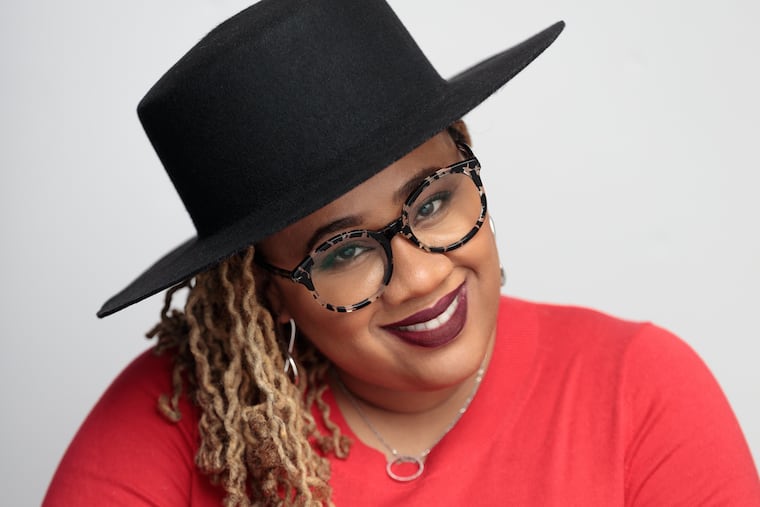When my film was pirated, it lost hundreds of thousands of dollars | Opinion
I maxed out my credit cards to make an independent film. If just a tenth of these illegal viewers paid just a dime to watch, it would be in the black.

Breaking into the film and television industry is notoriously hard — especially for a Black woman from Philadelphia (by way of New Jersey) like myself.
After a decade honing my craft on a 22 episode web series, Single and Anxious, and other projects, I landed a distribution deal for my first feature film: Love You Right, with a mostly Black cast I produced, directed, and cowrote with Marquis Valdez. I filmed on location in Philadelphia, New Jersey, and Delaware, maxing out four different credit cards along the way.
Welcome to the world of independent filmmaking — where passion and determination clash with logic and financial prudence.
We were lucky to get a deal to distribute the film on Amazon and other streaming platforms where viewers could watch for just a few dollars or as part of their existing subscription plans. But right after my film went live, it was stolen, appearing on numerous piracy sites and online video services. Friends blew up my phone sending me links to websites and platforms offering free downloads and streams of my work. I couldn’t believe the lengths the thieves would take to divert consumers away from legal services and toward their stolen copies — even creating fake social profiles and DVD covers for me and the film. And there was very little we could do to stop it.
» READ MORE: Local YouTuber charged by FBI in one of the largest cable TV piracy cases ever
In the last year, Love You Right has been illegally downloaded over 160,000 times globally using “peer-to-peer” file-sharing software (like Bit Torrent), according to the Tecxipio monitoring service. But the vast majority (94%) of piracy comes from streaming sites, which get millions (and millions) of visits; undoubtedly, my film has been viewed on those sites many thousands of times more.
I spent over $20,000 self-funding Love You Right, and the film still is not paid off. If just a tenth of these hundreds of thousands of views of my film paid just a dime to watch, it would be in the black. If just those 160,000 downloads paid a market rate of $4 per rental, the film would have earned more than half a million dollars.
“Blockbuster movies end up pirated as well, I know — but for them, losing that money isn’t as painful as it is for me and other indie filmmakers.”
Blockbuster movies end up pirated as well, I know — but for them, losing that money isn’t as painful as it is for me and other indie filmmakers. My husband and I made choices when we decided to pursue our creative dreams — living below our means to invest in equipment and convincing our team to work for an equity stake in the film rather than crew rates. We worked full time — me as a digital media teacher and professor at Esperanza College and Vocatio Career Prep High School, shooting when and where we could. For us, that loss of income has huge consequences.
What gets me most is that when digital piracy services diminish the market for films like Love You Right, it makes it harder for creators from marginalized communities to break in. Ultimately, that undermines Black and other diverse filmmakers, devaluing our creativity and making it harder to get the next project greenlit, leaving audiences even less served by an industry that is already falling short enough. A lot of people who worked on Love You Right got their first credits on the shoot — invaluable credentials in this clubby industry that they took with them as they launched creative careers. When piracy cannibalizes the economics of these films, it shrinks the creative pipeline for Black and brown creators all over the country.
So what can we do?
Congress needs to step up. We need stronger tools that can cut the problem off at its source. The most effective way to do this is to allow creators to get a court order cutting off access to scam websites that offer nothing but pirated films and shows. In over 30 countries around the world, creators and courts already have this tool. They can seek protection from the courts — subject to due process — and direct internet providers to cut off access to the worst of these piracy sites. That kind of transparent and court-supervised process ensures legitimate websites aren’t affected while giving creators like me a meaningful way to protect our work.
Bootlegging is wrong and harmful — not just to creators but also to innocent consumers and legitimate streaming services who cannot compete. Let’s work together to honor hard work, lift up diverse new voices, and protect and cherish the dignity of people who work so hard to make art that matters.
Christina Faith is a Philadelphia-based independent filmmaker who has created and released two feature films, “Love You Right” and “Who is Christmas Eve?”